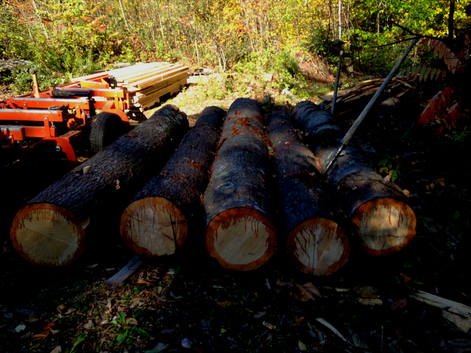 Turning Timber Into Lumber Turning Timber Into Lumber Sam Burnham, Curator At ABG our perspective is Southern. That’s because most of the people who have contributed here are Southerners. We take our stand among the live oaks, the peanut fields, and meandering rivers of The South. But the ideas we love and support aren’t always uniquely Southern. In their Statement of Principles, the 12 Southerners of I’ll Take My Stand added this thought: ”But there are many other minority communities opposed to industriaism, and wanting a much simpler economy to live by. The communities and private persons sharing the agrarian tastes are to be found widely within the Union. Proper living is a matter of the intelligence and the will, does not depend on the local climate or geography, and is capable of a definition which is general and not Southern at all. Southerners have a filial duty to discharge to their own section. But their cause is precarious and they must seek alliances with sympathetic communities everywhere. The members of the present group would be happy to be counted as members of a national agrarian movement.” So when we speak about a need for unity in this country we have to look for common ground. We have to find things that unite us rather than divide us. That’s something that has come up in our travels and stories. I’d like to take a look at some. In 2014 I traveled to Maine. My goal was to visit the bedside of my Grandpa, to say goodbye. But my experience there shed light on the plight of non-coastal Mainers. Maine, like Georgia, is two states. The cities, which are coastal, hold political sway over the rest of the state, which is mountainous. The political issue at that moment was a ballot initiative that would put an end to hunting and trapping practices regarding black bears. The city people found the practices “cruel.” The state wildlife biologists (read: “settled science”) argued that the practices were essential for maintaining healthy populations of bears and for minimizing human-bear interactions. The rural people, whose values, practices, and beliefs belong in the articles of this website, fought to preserve hunting and trapping. The proposal was defeated by about 40,000 votes but the threat of coastal tyranny remains in Maine. 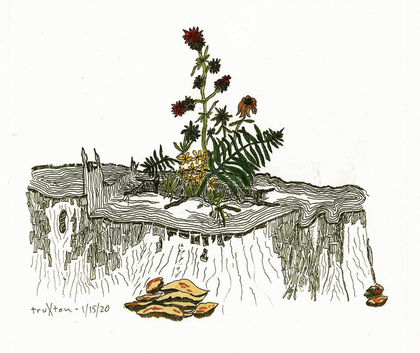 An Oregon Tree Stump - Truxton Meadows (Click for Link) An Oregon Tree Stump - Truxton Meadows (Click for Link) Out in Oregon I have a friend who recently discovered he has a gift in the visual arts. His family has deep roots in those woods. His father was a logging road inspector who started in forestry at the age of 16. He put in 42 years of service before retiring. Now his son has a pile of stories from riding shotgun in the forestry truck with dad. Deep in those woods stands the memory of a burned train trestle that spanned a huge canyon. “ It’s something nobody else but someone that drove back that deep would ever see or knew existed.” He also has the stories from his great-grandmother who went out on the Oregon Trail. “ She lived to 105 and used to tell us kids about coming over on the wagon train as a little girl and the history of that area.” ”My family is tied to the woods here. Sadly, they’re burning now.” That sorrow isn’t just from the environmental or economic damage the fires are creating. It’s from a real attachment to the land. It’s the knowledge that those trees, mountains, rivers, that land is where generations of his family took their stand. That love comes through in some of his art which appears here, linked to his artist page. 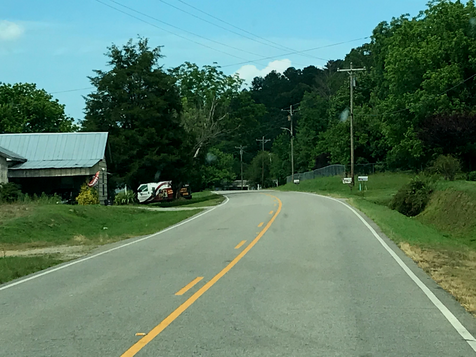 Rock Run, Alabama - A Place That Matters Rock Run, Alabama - A Place That Matters We could tell these stories forever. They could come from every region of the country. Those proud Texans, Kansas Jayhawks, and Indiana Hoosiers could all make an argument on why their plot of dirt is the best place on Earth, whether you agree or not. We even see this phenomenon in the troubled communities deep in our cities. For a person of this mentality, home is home. It’s not just where you hang your hat, it’s where you take your stand. For a man or woman this connected to home, they’ll fight to protect that spot. They’ll work to make it better. They’ll ward off gentrification, they’ll support local businesses, they’ll look out for their neighbors. The problems we face as a country aren’t going to be solved in Washington. It does not matter which party has control. It will only get better when this mindset takes root in all the little places no one thinks about. When folks love a place enough to make it better, that’s when we’ll see true greatness return. Mentoring school kids, picking up litter, just loving a place - thinking local, acting local - that’s where the difference is made. That’s where, although divided by space, we become united in mission. Where’s your spot? What do you love?
0 Comments
Leave a Reply. |
Sam B.Historian, self-proclaimed gentleman, agrarian-at-heart, & curator extraordinaire Social MediaCategories
All
Archives
November 2022
|
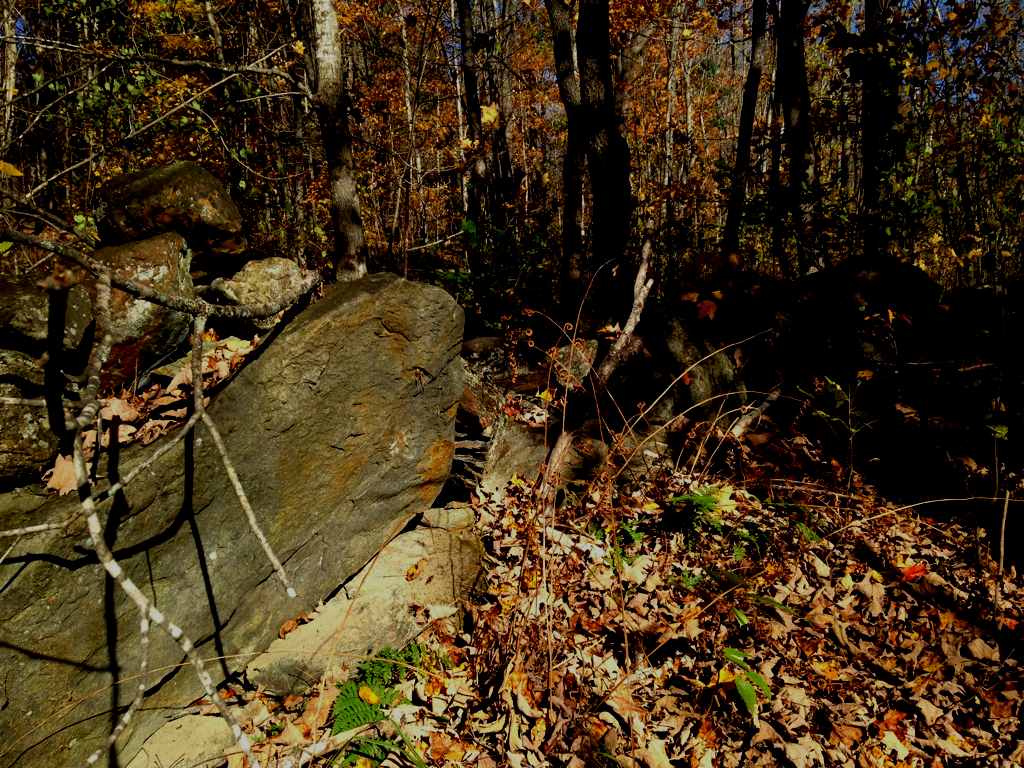
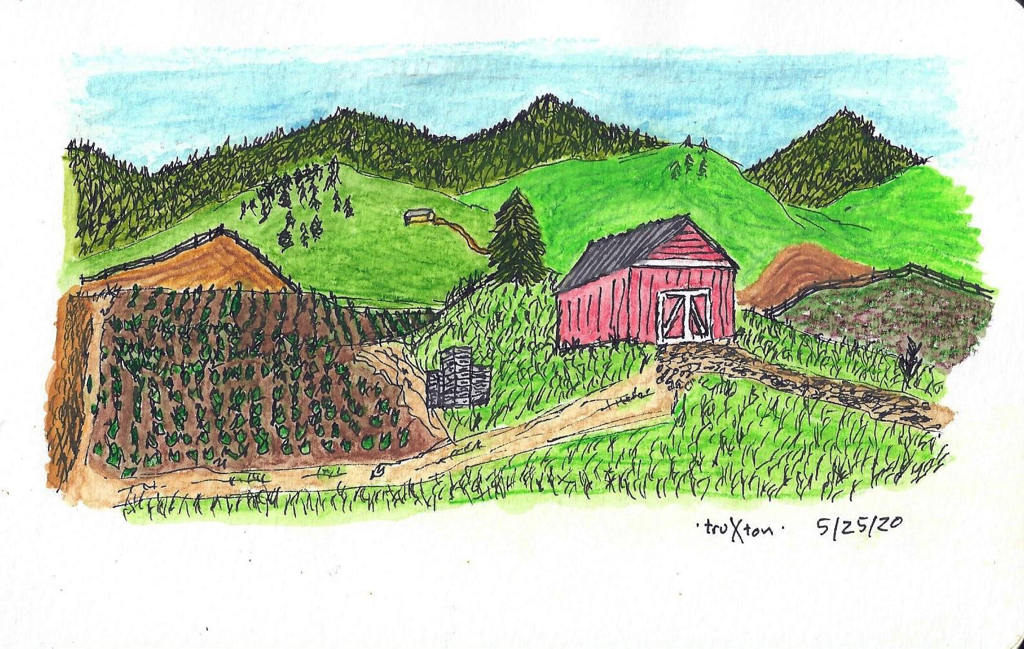




 RSS Feed
RSS Feed
